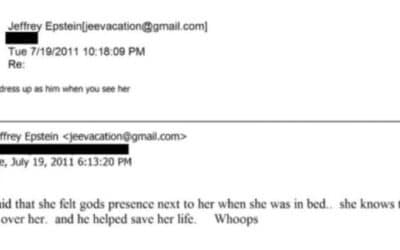Government bureaus have interests, and these always lay in more power and more money for their budgets. Here’s a case study to illustrate the general principle that the leadership of administrative agencies are best understood as political partisans.
Over the last few weeks, United States Surgeon General Vivek Murthy has been advocating for “warnings” on social media to protect children and adolescents from the alleged psychological harm that social media pose to them. This announcement came on the eve of a decision by the U.S. Supreme Court in Murthy v. Missouri, in which the Court determined that, due to a lack of standing to sue by the plaintiffs, state governments and five social media users, the lower courts lacked jurisdiction to enter orders barring the Joe Biden administration from seeking to censor public discussion by pressuring social media companies to stop “misinformation,” which meant messages that contradicted or questioned the official administration narrative on a range of politically-sensitive subjects from COVID-19 to the 2020 elections to Hunter Biden’s laptop.
While the Surgeon General cannot unilaterally impose warning labels on anything, his call for such labels amounted to lobbying Congress and the public for new regulation. Treating social media use as a public health issue now assumes new prominence in light of the Court’s jurisdictional decision in this case. The Court was unconvinced that the plaintiffs had shown a real likelihood that the government would pressure social media companies to control speech in the future. As this is an election year with a closely contested presidential race, readers can decide for themselves whether the government is likely to revert to its former efforts to control social media discussion, and whether it is likely that the administration may view the Court’s decision as a green light to resume its practices of seeking to control public discourse on social media.
Next, the Surgeon General announced that gun violence is a “public health crisis,” which supports calls for government intervention in private firearms ownership. He announced this purported crisis just after White House talking points for the preceding week emphasized familiar calls for restricting private firearms ownership, and this, too, amounts to public relations recommending new legislation and regulatory power in an election year.
While the Surgeon General has never held elective office, he is unquestionably a political actor. He worked as a policy advocate in the nonprofit sector, in government, in electoral politics, and as Surgeon General from 2014-2017 and 2021 to today. After President Trump replaced Murthy in 2017, he served on corporate boards and in consulting; in fact, Murthy made over $2 million in Covid-19 consulting fees from business corporations while in private life.
But the issue is not Murthy, because his career is typical of federal policy elites. The career as a policy advocate both inside outside of government, access to opportunities on corporate boards, consulting fees, and paid speeches, all of these are common to policy elites, and other people in similar positions do the same kinds of things all the time. Instead, the point here is understanding bureaucratic behavior in light of elite interests, and the Surgeon General’s public advocacy over the last couple of weeks illustrates this nicely. Viewed as partisan activity on behalf of bureaucratic power, his recent calls for government interventions in social media and private firearms ownership are unsurprising.
The interests of public bureaucracy are always to obtain more regulatory power and more funding and to protect their institutional interests, and the interests of policy elites on the left are aligned with those of the public bureaucracy. Consequently, Murthy would have been rightfully concerned about the pending Supreme Court’s decision in Murthy v. Missouri, so it made sense for him to assert that social media pose public health problems for children, which requires warnings to parents over the potentially dangerous ideas children may learn that contradict official narratives. Likewise, his claim that private firearms ownership is a public health crisis directly supports the Biden campaign’s narrative over the last couple of weeks proclaiming the administration’s accomplishments in gun control policy and calling for new restrictions on private firearms ownership.
Americans’ trust in the public health bureaucracy has declined since the pandemic, and one of the reasons for this is that many people see too much political influence into what they would prefer to believe are policies based on objective scientific knowledge. But the permanent bureaucracy, and the managerial elites who control it, have interests, and these interests involve more power and funding flowing their way. Serving those interests may involve limiting citizens’ constitutional liberties, and this administration is comfortable with that.































